The Way Forward is Back
Harley-Davidson has been making obsolete, inefficient and technologically deficient motorcycles since the 60's. Despite an unrelenting onslaught of technically superior Japanese product, the Harley-Davidson brand has stayed true to its roots (however inadvertently). They've never stopped building bikes that maintain the charm and character of old-fashioned American motorcycling. Or, put another way, Harley makes its living convincing otherwise responsible adults to pay premium prices for old technology. This transition– from cutting edge to outdated to nostalgic to a way of life– is a perfect model for the American automobile industry.
It's already happening. Consider America's love of big dumb SUV's, or, better yet, its best-selling vehicle, the F-150. Ford's perennial sales leader is a tried-and-true workhorse built around fundamentally simple (if highly evolved) technology. As personal transportation it's incredibly inefficient. Compared to a Japanese or Korean car, it's laughably basic. And yet the F-150– and American pick-up trucks in general– are thriving. They're style icons that remind drivers of a time when American culture was dominant and cast iron V8's ruled the roads. The modern F-150 is as "authentically American" as any '50's hot rod or '60's muscle car.
American automobiles started going wrong in the '80s and '90s, when Japanese imports changed the rules of the game. Yes, there were still cars wearing the Camaro, Firebird and Mustang nameplates, but even these Stone Age carry-overs were loaded-up with "sophisticated" technology. As for the rest… Modern braking and steering systems, turbocharged engines, front-wheel-drive, aerodynamic design, adaptive suspensions– there's a long list of technology that gradually turned proud American iron into something, well, pathetic. These "improvements" robbed American cars of their character without adding anything to their intrinsic appeal.
The Japanese are very good at building Japanese cars (which are enhanced clones of European sedans). American automakers should stop trying to compete. In fact, they can't compete. While the Big Three have engineering and design talent to spare, their sky-high labor costs and stifling bureaucracy make it virtually impossible to build a passenger car with anything like the quality and technology of their rivals'– never mind the price. As FedEx proved, the key to success isn't doing something a little better than the other guy; the trick is to do something DIFFERENT. Like building American cars.
Building big dumb American cars offers US automobile manufacturers a huge economic advantage. American-style muscle cars can be sold for higher margins than price-sensitive mainstream vanilla sedans (whose manufacturers are engaged in a never-ending battle for value-driven customers). The possibilities are endless. GM, Ford and Chrysler could market an entire range of garish, low-tech, high-profit American nostalgiamobiles. No need for state-of-the-art braking systems, no need for fuel-efficiency (captive imports can be used to keep the CAFE under control), no need to keep up with Toyota or Honda or Nissan or Hyundai. Just build something with all-American allure, satisfy NHTSA safety regs and call it good. No, call it great.
This strategy would be in perfect synch with the heartbeat of America: NASCAR. The quintessentially American race series is a showcase for '60's tech. (Yes the race teams are high-tech, but how many modern cars are equipped with carbureted V8's?) In fact, "NASCAR Nation" is nothing more than a public manifestation of American car culture– which never died nor wavered from its belief that there's no replacement for displacement. Before the Daytona 500, Speed Channel interviewed several NASCAR drivers. To a man they said that their first, favorite and current vehicles were pickup trucks. Just like the majority of Americans.
Building and selling charismatic American vehicles with V8 engines and solid rear axles could result in a rebirth of the "win on Sunday, sell on Monday" philosophy. Cruise nights at local drive-ins would no longer be dominated by cars built during the Johnson and Nixon administrations. In fact, you'd see a new flowering of American car culture. And since the automakers wouldn't be spending money on developing, refining and implementing the latest vehicle technology, they could focus their R&D dollars on accessories. As Harley Davidson will tell you, non-mechanical parts are a licence to print money.
Of course it'll never happen. Detroit still thinks this is 1966, not 2006. Too many people in top management believe their automotive divisions will never become Harley-like 'niche players'– even though it's already happening. They think they're only a spiffy new high-tech car (or fifty) from market dominance and massive profitability. They think they can somehow compete against the new guys' non-unionized labor and technological ingenuity– even if they have to build their cars in China and Korea to do it. We can only hope that the Big Three's bankruptcy and resulting reorganization happen as quickly and painlessly as possible. That way, America's automakers can retrench, regroup and start building genuine American cars again. Cars with style, power and profit.
More by Thomas Bernard
Latest Car Reviews
Read moreLatest Product Reviews
Read moreRecent Comments
- Tane94 Blue Mini, love Minis because it's total custom ordering and the S has the BMW turbo engine.
- AZFelix What could possibly go wrong with putting your life in the robotic hands of precision crafted and expertly programmed machinery?
- Orange260z I'm facing the "tire aging out" issue as well - the Conti ECS on my 911 have 2017 date codes but have lots (likely >70%) tread remaining. The tires have spent quite little time in the sun, as the car has become a garage queen and has likely had ~10K kms put on in the last 5 years. I did notice that they were getting harder last year, as the car pushes more in corners and the back end breaks loose under heavy acceleration. I'll have to do a careful inspection for cracks when I get the car out for the summer in the coming weeks.
- VoGhost Interesting comments. Back in reality, AV is already here, and the experience to date has been that AV is far safer than most drivers. But I guess your "news" didn't tell you that, for some reason.
- Doc423 Come try to take it, Pal. Environmental Whacko.




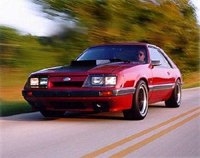

















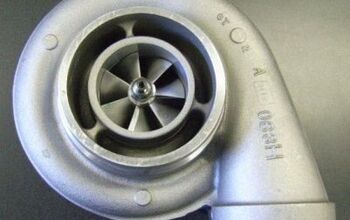
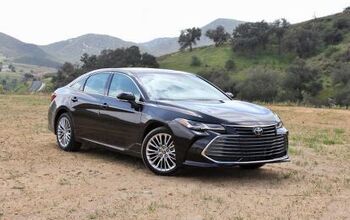
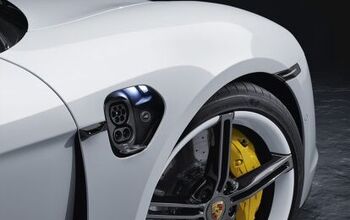
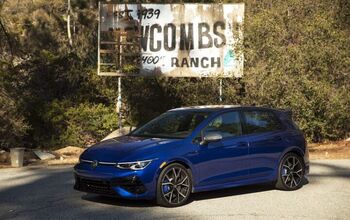
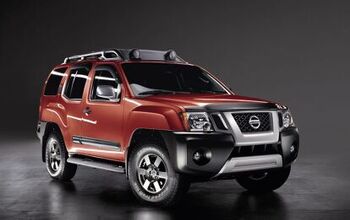

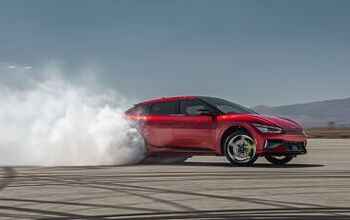








Comments
Join the conversation